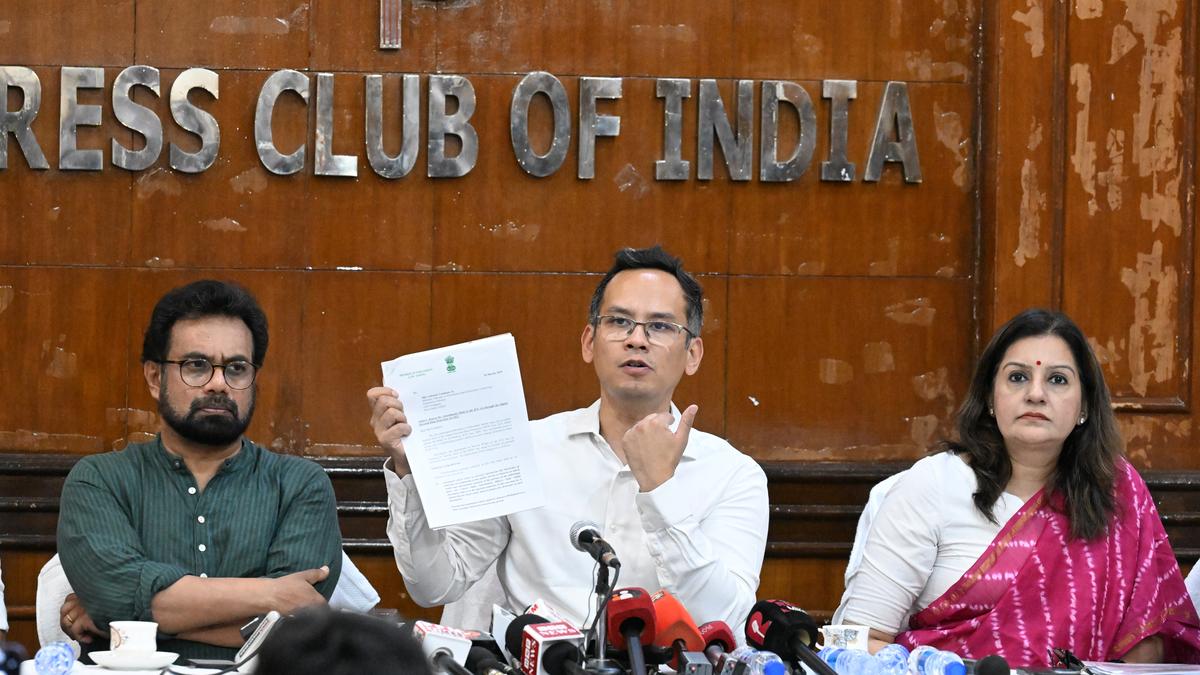
The United Nations General Assembly declared May 3 to be World Press Freedom Day, a reminder to governments of the need to respect their commitment to press freedom. In this chapter, we use insights from the discussion we had in a session at WSA Congress 2025 in Hyderabad, by Nikhil Dey of MKSS and Sangeeta Barooah of Press Club of India on the intersection of the new Data Protection Bill and what it means for journalism and media in general.
This is the Government of India's Press Note from last year on this occasion, published in the PIB website

From the same release:
After 30 years, the historic connection made between the freedom to seek, impart, and receive information and the public good remains as relevant as it was at the time of its signing. It is an opportunity to:[4]
Celebrate the fundamental principles of press freedom;
Assess the state of press freedom throughout the world;
Defend the media from attacks on their independence; and
Pay tribute to journalists who have lost their lives in the line of duty
It sounds very interesting. There's just one catch: yet to be notified in a gazette, yet already passed in law is the Digital Personal Data Protection Act, 2023, which does not go in line with the PIB's calls for press freedom.
First, a little detour into the RTI act, which has by now been almost a normal part of every activist's life and most cannot remember a time when the act did not exist.
The Right to Information (RTI) Act of 2005 was a landmark law that was passed in 2005 which made previously opaque and inaccessible state records publicly available to citizens upon demanding them. It empowered citizens to demand information from public authorities and government offices, who are mandated to reply with the same in 30 days. As explained by Shekhar Singh, a leader of the RTI movement, "though it has its own victims and levels of…violence, promises a much more benign method of making governments answerable…. The worrying thing is that the government…continues to try and weaken the RTI regime." In ten years since enactment, 17.5 million requests for information were made.
The above chapter of typeright looked into the RTI act, the attacks on RTI activists, and how there is a movement that sought to strenghten the act. However, the movement to strenghten the act now has to contend with new laws that not just dilute right to information but also potentially threaten journalism altogether.
This sounds very unintuitive. How can a law named after data protection and pro-privacy, and claimed to be modelled after the much-hailed GPDR of the European union be so concerning?
"It destroys RTI in one amendment. Using GDPR principles in its name, it destroys transparency and does nothing it aimed to do – prevent surveillance or their own data from being used commercially. The data companies and government are both happy because for the companies, they can sell the data and for the government, it empowers them to use draconian provisions." (Nikhil Dey, MKSS)
The law was passed without any discussion – given how many people it affects. It was passed at a time when opposition MPs walked out after asking for a discussion on the Manipur violence. At that time, the parliament had no opposition. Most laws give some exemption to journalists for collecting info/data – as the fourth estate. This act has no such thing. I work for TheWire, and my stories are based on RTI replies – like questioning top guns, CMs of states, govt departments, central govt, etc. Now with this, it will override the RTI act. DPDP will prevail over RTI. Cant question corruption. (Sangeeta , Senior Journalist)
Now, under the new law, people accused of corruption can ask for their name to not be used in a story - because of privacy rights. The same with the huge exposes like the Electoral Bond scam, or any scams for that matter. You can no longer write about these direct links without the consent of the parties involved. And no one would give consent to them being named in a scam!

Why the RTI is important? It helped control corruption and the arbitrary exercise of power and empowered people to realize their rights. DPDPA, through section 44(3), removes the question - anything identifying a person from the domain of given information has to be removed – Any who part that is identifiable is gone. This prevents us from controlling corruption or arbitrary exercise of power. No person to hold accountable.
“The change to Section 8(1)(J) the RTI Act is not merely a technical amendment; it is an attack on the ability for citizens to hold the government accountable. The RTI Act now has a cold iron statutory bar that will prevent a public information officer from disclosure of any “personal information”. It will advance state impunity rather than individual privacy. The implications are profound. Investigative journalism, public interest litigation, and civic activism—pillars of a vibrant democracy—risk being undermined. The ability to scrutinise public officials, demand clarity on policy decisions, and hold institutions accountable is imperilled. The RTI Act is not an inconvenience to be legislated away. It is a constitutional commitment to the people of India—a means to hold power to account, to question, to demand answers. Hence, the MPs’ letter and the press conference is a welcome step. The repeal of Section 44(3) is not merely a legislative correction—it is a democratic imperative along with a broader review of the data protection law that was passed through parliament without any meaningful debate.”.
(Apar Gupta, Internet Freedom Foundation)

There is now an obligation not to give any citizen personal information which has a relation to public interest or activity. The amendment deletes the part which talks about public activity or interest, making it a blanket clause on personal information identifiers. RTI was to get the details of Non-performing assets – these could no longer be done. Details of social security pensions - several people were marked as dead only because they couldn't meet biometrics – we asked who marked them dead. We can no longer access this.
If the government exempts any entity from taxes, we won't know this now.
Big data companies get this consent from you in the long document that no one reads before they click accept. But journalists are not exempted - moreover, they are bound by it with heavy fines that run upto $40 Million and imprisonment. This effectively means journalists can only act as PR agents, as they are only allowed to say what the government permits them to say, as Anjali Bharadwaj, co-convenor of the National Campaign for People’s Right to Information puts it.
Since its inception, the RTI act balanced a conceptual fine line between transparency and privacy - the people who campaigned for the act were well aware of this debate. The formulation of the law balanced this by placing larger public interests at the centre - transparency is for the government, which has to be accountable, and not for the citizens for whom privacy is central. Now, the balance is not just shattered, but the notion is reversed. We will end up with more surveillance of the people and less accountability of those in power.
As yet another press freedom day goes by, this act is presently the largest looming to threat to free press and journalism.
In Other News & What Are We Reading
Thirty years after the internet has come to the country, the supreme court has declared access a fundamental right-
E-KYC is so normalised, but has the system thought of the disabled people who cannot do this procedure?
Recent developments in conflict and the rise of propaganda, misinformation and censorship:
While we talk of death by data, here is a report on the death of data, or the data of deaths:
And finally, while the case lags in India, the US court has asked the spyware company to pay fines-









DEF Updates
"Names like ‘Paliya’ are not just labels. They are wounds — and also acts of survival, dignity, and resistance. A just census must see without shaming, count without erasing, and recognise without punishing." In the context of the growing national discourse around the caste census, Dr Dhiraj Singha from the Research and Advocacy Division at Digital Empowerment Foundation writes on the Paliya community of Bengal.
"The same system that promises to equip people with fluent language can double as a gatekeeper, tying good writing to invisible codes of class, caste, and privilege. In doing so, it erases the scope for language to become a currency of opportunity, " writes Dr Raina Ghosh from the Research and Advocacy Division at Digital Empowerment Foundation.
From DEF's comprehensive training programme for rural women entrepreneurs and artisans in Bolpur, West Bengal

See you in the next post.




























 might be?](https://sk0.blr1.cdn.digitaloceanspaces.com/sites/1394/posts/714526/dbc8de4c-5c50-411f-aba0-55cfb74a692d.jpeg)

Write a comment ...